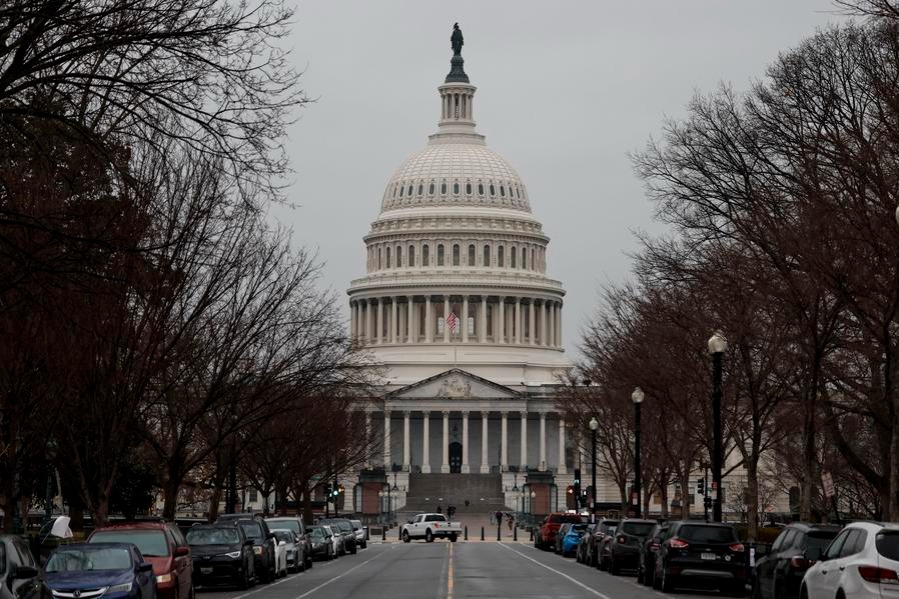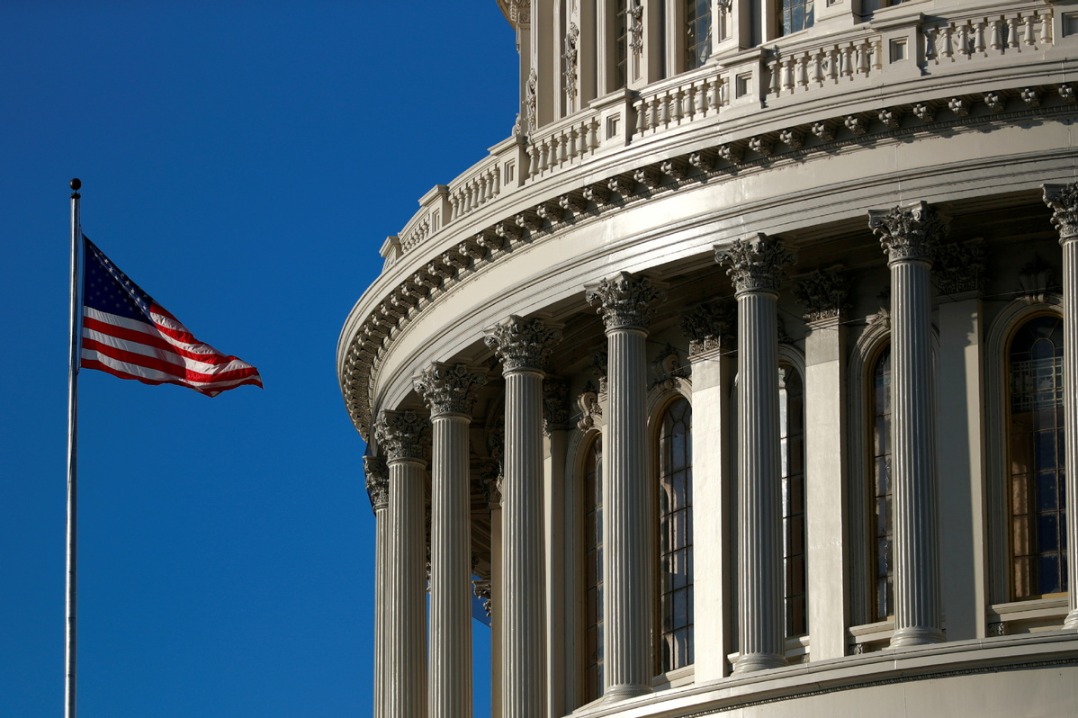US ending sponsoring Israel's provocation key to winding down Middle East conflict: China Daily editorial


Although Washington continues to reiterate its pro-cease-fire stance on the Middle East crisis and claims it will only defend Israel, its latest deployment of military forces clearly demonstrates the Joe Biden administration's de facto unconditional support for the warmongering Benjamin Netanyahu government.
The Pentagon said in a statement on Friday that B-52 bombers, fighter jets, refueling aircraft and US Navy destroyers are being deployed to the Middle East, to cover the aircraft carrier gap that will be created by the withdrawal of the USS Abraham Lincoln carrier strike group from the region until another carrier strike group is cycled in.
The deployment of the long-range nuclear-capable B-52 bomber aircraft will bolster the combat strength of the US in the region and is viewed as being a pointed message to Iran.
The US' readjustment of its military assets in the region comes at a critical time as tensions between Israel and Iran continue to escalate.
The Netanyahu government is trying to hype up anticipated retaliation from Iran for Israel's three waves of air strikes on Iranian targets on Oct 26 as an excuse to launch new military actions against the Islamic Republic.
Despite Teheran repeatedly saying it does not want a war with Israel, the Israeli war Cabinet has made it clear that is its goal. Israel hopes to take the opportunity of the US' support to strike against its archenemy, and the Biden administration is encouraging it to do so, since it is not Hamas nor Hezbollah, or the Houthi rebel outfit, that is the US' real concern in the region, but Iran.
Israel and the US have calculated the timing of Israel's recent strikes on Iran well, giving full consideration to how long it will take the US side to make the adjustments to its military deployments in the region before the presidential election and passing the ball to Iran's court by presenting it with a window of opportunity to take reprisal actions against Israel just before or even on the day of the US presidential election on Nov 5.
Iran's supreme leader Ayatollah Ali Khamenei has warned Israel and the US that Teheran intends to retaliate to Israel's recent strikes on targets in Iran. "The enemies, whether the Zionist regime or the United States of America, will definitely receive a crushing response to what they are doing to Iran and the Iranian nation and to the resistance front," Khamenei said in a video released by Iranian state media recently.
Even if Iran refuses to bite the bait on the hook — and Israel is goading it to do so by further intensifying its assassination campaign against the Hamas and Hezbollah leaderships and brutal attacks on Gaza's refugee camps — Israel has undoubtedly secured more US support for it to step up its actions targeting Iran itself, rather than its regional proxies.
The upcoming US presidential election will prove to be a watershed event for the Middle East crisis. As long as Tel Aviv and Washington continue to scratch each other's back on the issue, peace will not be forthcoming as Israel will take new actions to provoke Iran and its proxies, forcing the situation into an escalating tit-for-tat spiral that can only lead to war.
To prevent this, diplomatic efforts need to be intensified to generate the political will to end all moves that fuel antagonism and ignite conflict. The onus is on the US, as the country with influence, to play its due role to prevent a spillover of the crisis.
China urges the US to put aside its historical differences with Iran and play a constructive role in the region to avoid further turmoil. To this end, Washington should make positive efforts to end the fighting as soon as possible by bringing its influence to bear on Israel in the pursuit of a cease-fire rather than continuing to support its provocation.


































